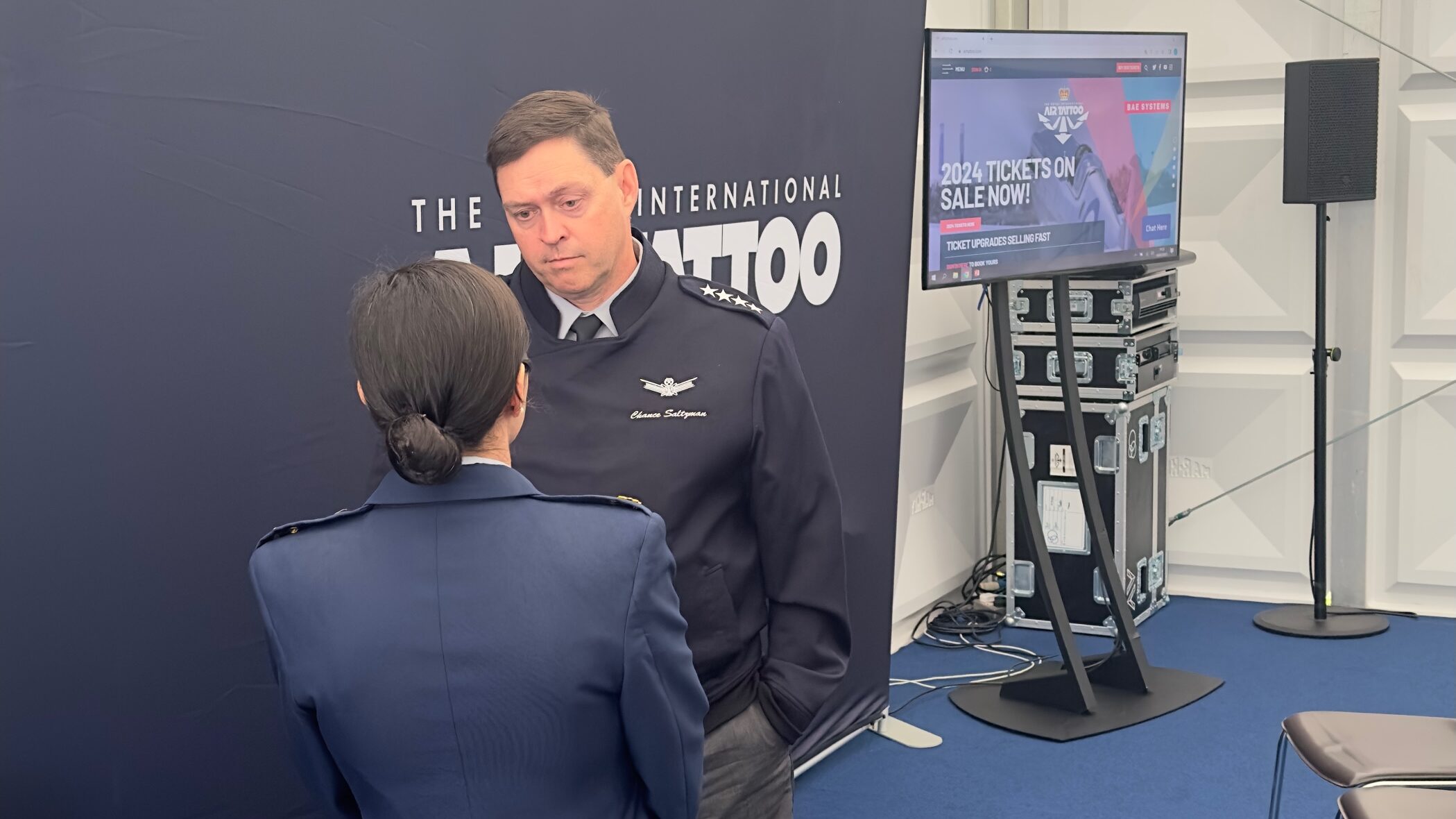TIM MARTIN

Gen. Chance Saltzman, Chief of Space Operations, US Space Force suggested destruction of allied satellites by an adversary should be considered “an act of war.” (Tim Martin / Breaking Defense)
RIAT 2023 — The top US Space Force uniformed official recently put his full support behind the service defending European allied satellites against adversary attacks, warning any destruction of a friendly satellite will be considered “an act of war.”
Gen. Chance Saltzman, chief of space operations, told media at the Royal International Air Tattoo on July 14 that protection on offer to allies by the US should be “no different” to how it currently provides air defense cover by protecting communication nodes “regardless of the country that has contributed to those nodes.”
Defending satellites has become much more of an urgent issue for both the US and European partners since Russia’s invasion of Ukraine, with Moscow carrying out non-destructive cyberattacks on Viasat’s KA-SAT and SpaceX’s Starlink networks. In the first case, “tens of thousands of modems” were forced offline by Russia, according to the US, Canada, Estonia, the European Union and the UK, reported Reuters in May 2022.
Underlining China and Russia’s anti-satellite threat, Saltzman expressed growing concern over recent adversary tests.
“I am almost to the point now where there’s not a lot of difference between testing a single article in space and having an operational capability,” he said. “It takes so much to put an actual system on orbit that can achieve test objectives. You’re dangerously close to saying, ‘I have an operational capability’.”
Russia, China and India have undertaken one-off tests of ground-launched anti-satellite missiles, for example — and the US Navy shot down an ailing American spy satellite using a modified Standard Missile-3 in the 2007 Operation Burnt Frost.
Saltzman stressed that destruction of a satellite should be considered “an act of war,” especially if it contributes to the pursuit of “military objectives” by the aggressor, and suggested the US would interpret such a situation in exactly the same way if the satellite under attack belonged to the UK or Estonia as two examples.
“The destruction of a satellite may not have that same public effect as a missile attack into a civilian population, but from a military standpoint, you’ve still definitely created an act of war,” said Saltzman.
That said, he added that the US is hoping to avoid such situations. “The preferred condition is to be in a state of competition, if the only alternatives are crisis or conflict,” he said.
The Space Force has a strategy of “competitive endurance,” Saltzman said, based around three principles: avoiding “operational surprise” by having sufficient capabilities to react to irresponsible or threatening actions in space and capacity to deny “first mover advantage,” linked to creating “target problems” for adversaries.
Finally, conducting counterspace operations has to revolve around Space Force denying adversaries the “ability to use space-enabled targeting against terrestrial forces,” he said. Fundamentally, stopping space-based targeting would prevent adversaries from increasing weapon ranges and deprive them accuracy of the weapons themselves, added Saltzman.
He was also clear about some of the key areas “ripe for collaboration” between Space Force and European partners, mainly covering “equipment, training and policy” — areas in line with the service’s “partner to win” ambition.
Joint requirements with European allies are, he said, much “less complicated” to plan and discuss compared to joint procurements.
For example, Saltzman outlined that the Deep Space Advanced Radar Capability (DARC) program will include “multiple nations” once it “comes into being,” with the UK and Australia already partners by way of offering to host radar systems.
The US also currently operates an early warning system capable of detecting ballistic missiles in space, based at RAF Fylingdales in North Yorkshire, England.
Additionally, Space Force has laid out plans to standup a “component” to US European Command, based at Ramstein Air Base, Germany, and “24/7” space operations are expected to begin in August from a US space defense center at NATO’s Allied Air Command, also in Ramstein, according to SpaceNews.
Theresa Hitchens in Washington contributed to this report.
No comments:
Post a Comment